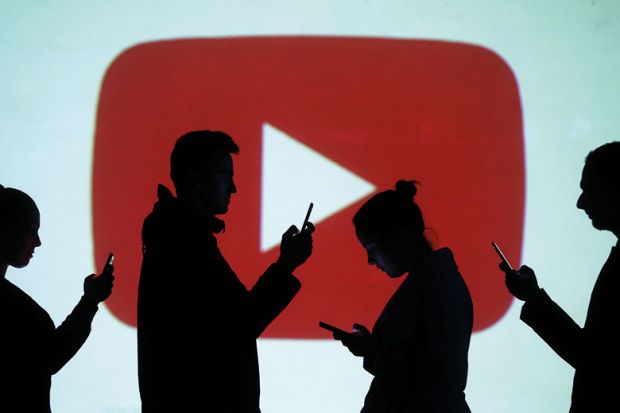Universities have warned that new European Union rules designed to regulate the sharing of copyrighted content on sites such as YouTube could have “dire consequences” for institutional research repositories.
The new directive, approved by MEPs on 12 September, is designed to make news aggregators and online platforms responsible when they host copyrighted material like films or music.
The idea is to make them share a slice of their vast revenues with journalists, musicians and other content creators whose material they host.
But academic groups fear that, as well as applying to technology giants, the new rules could also force universities to introduce costly screening systems to make sure copyrighted material is not uploaded to their research repositories.
Lidia Borrell-Damian, director for research and innovation at the European University Association, asked: “Why should universities spend a lot of resources dealing with material when it’s academic content?”
For example, they might need to start checking whether film studies papers contain copyrighted film stills, Dr Borrell-Damian said.
The directive does explicitly exclude “providers of online services where the content is uploaded with the authorisation of all right holders concerned, such as educational or scientific repositories”.
But according to Sparc Europe, a group largely made up of libraries campaigning for open access, this exemption “falls short” because it “only pertains to cases where the content is uploaded with the approval of all rights holders involved. This would obligate repositories to actively clear rights or licences for all content.”
University repositories are “completely incomparable to Google or YouTube”, the organisation has argued, warning that the directive could have “dire consequences for repositories”.
Other organisations have also sounded the alarm. Liber, a group of European research libraries, has said that although sites such as YouTube have the resources to cope with new monitoring and filtering requirements, repositories do not.
Hopes are not high that the directive will be changed as it is finalised in negotiations between the European parliament, commission and member states. Normally when you have agreement between the parliament and the commission, the member states agree, Dr Borrell-Damian said.
The passage of the directive has also disappointed research organisations which have warned that it does not carve out enough of a right to perform text and data mining (TDM) on large sets of information – a technique seen as increasingly important as academics deal with the vast quantities of content thrown up by the digital world.
The directive leaves too much flexibility for member states to set the rules, Dr Borrell-Damian said. One research team in one part of Europe might have rights to do TDM for free, while another might have to pay for the privilege, she warned.
However, some previously mooted ideas that attracted criticism from academic groups did not make it into the final version of the directive. One proposal would have forced academics to pay to quote newspapers in their research, but this was dropped, according to Marie Timmermann, EU legislation and regulatory affairs officer at Science Europe.




